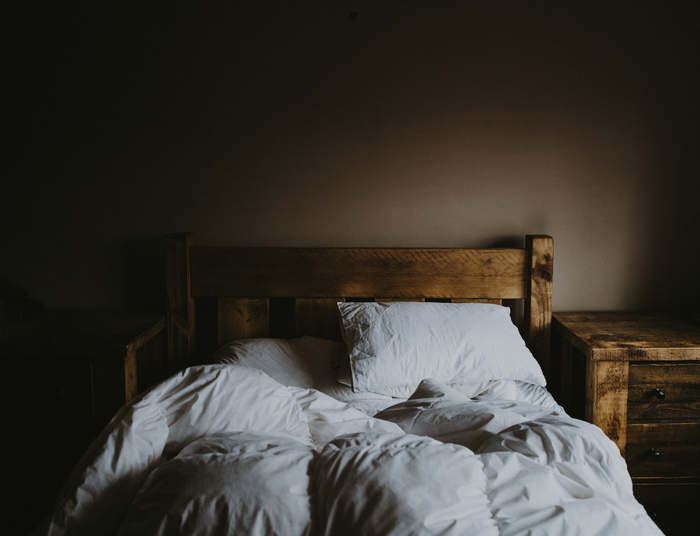The rate of parental stress is greater among parents who have sleep disorders themselves, or have children with sleep disorders, according to a new study published this week in the open-access journal PLOS ONE by Ray Merrill and Kayla Slavik of Brigham Young University, US, and colleagues.

Credit: Annie Spratt, Unsplash, CC0 (https://creativecommons.org/publicdomain/zero/1.0/)
The rate of parental stress is greater among parents who have sleep disorders themselves, or have children with sleep disorders, according to a new study published this week in the open-access journal PLOS ONE by Ray Merrill and Kayla Slavik of Brigham Young University, US, and colleagues.
Sleep and stress disorders are known to have a two-way correlation, with stress promoting sleep disorders and sleep disorders promoting stress. Among parents, there is thought to be a complex interplay between their own sleep, stress, mood and fatigue and their children’s’ sleep.
In the new work, the researchers analyzed data on 14,009 employees insured by Deseret Mutual Benefit Administrator (DMBA) in 2020, all of whom had dependent children. Overall, 2.2% of the employees filed medical claims for treating stress and 12.5% filed claims for treating a sleep disorder, including insomnia, hypersomnia or sleep apnea. 2.0% of children filed one or more medical claims for a sleep disorder.
The researchers found that, after adjusting for age, sex and marital status, rates of stress are 1.95 (95% CI 1.67-2.28) times greater in employees with a sleep disorder. Specifically, rates of stress are 3.00 (95% CI 2.33-4.85) times greater for those with insomnia and 1.88 (1.59-2.22) times greater for those with sleep apnea. In addition, the rate of employee stress is 1.90 (95% CI 1.33-2.72) times greater if their child has any sleep disorder, and 2.89 (95% CI 2.20-3.80) times greater if their child has insomnia. The study also found that if a child has a sleep disorder, the rate of parental insomnia and sleep apnea are both nearly doubled.
The authors conclude that a better understanding of the connections between parent and child sleep quality and parent stress may help improve treatment and lower the risk of these disorders.
#####
In your coverage please use this URL to provide access to the freely available article in PLOS ONE: https://journals.plos.org/plosone/article?id=10.1371/journal.pone.0279476
Citation: Merrill RM, Slavik KR (2023) Relating parental stress with sleep disorders in parents and children. PLoS ONE 18(1): e0279476. https://doi.org/10.1371/journal.pone.0279476
Author Countries: USA
Funding: The authors received no specific funding for this work.
Journal
PLoS ONE
DOI
10.1371/journal.pone.0279476
Method of Research
Observational study
Subject of Research
People
Article Title
Relating parental stress with sleep disorders in parents and children
Article Publication Date
25-Jan-2023
COI Statement
The authors have declared that no competing interests exist.




